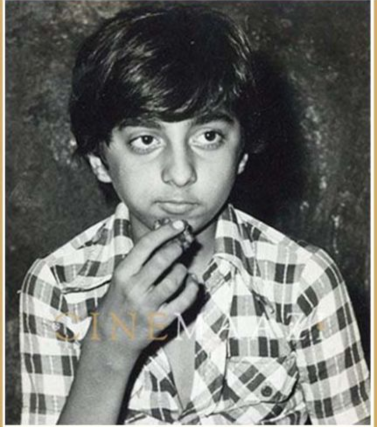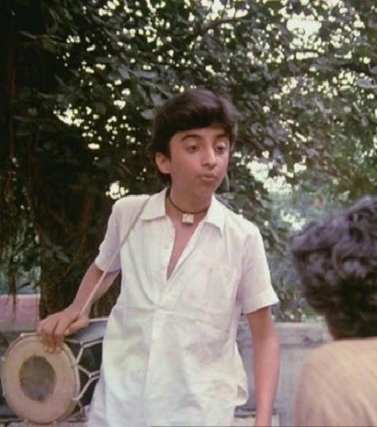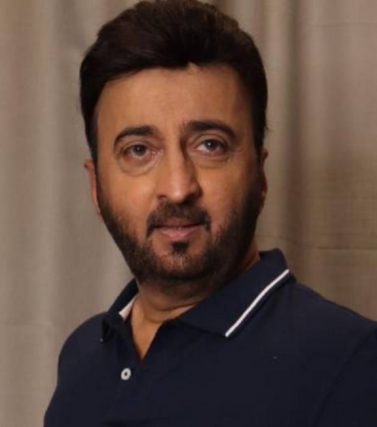
How Master Raju's Arrogance Led Him Astray
In the realm of arrogance, young actor Master Raju found himself drowning. As the spotlight shone upon him, his inflated ego obscured his path, ultimately leading him to his downfall.

Fahim Ajani, also known as Raju Shrestha, born on August 15, 1966, got huge popularity as Master Raju or Master Rajoo. He embarked on his journey in the film industry during the 1970s, beginning as a child actor. Master Raju quickly captured the hearts of audiences with his undeniable talent and charm, becoming a household name.
In Dongri, located in south Mumbai, many child and junior artists hailed from there because casting agents resided in the area. Gulzar bhai, in search of a child actor for Parichay, wasn't impressed with the usual child actors in the industry at the time. A junior casting agent contacted my father to inquire if I would be interested. Despite our family's lack of familiarity with the film world, my father initially hesitated but eventually relented. We visited Gulzar bhai's office in Pali Hill, Bandra, where auditions were underway. Feeling unprepared compared to the other children, I felt inferior. However, Gulzar bhai saw potential in me and appreciated my natural behavior, unlike the over-prepared children. Eventually, I was cast in Parichay, and my performance in the film, particularly the scene where I say 'K for Karna hai,' received widespread acclaim, marking a successful debut in the industry.

During an interview, he revealed that his nickname "Raju" originated from Sanjeev Kumar during the filming of Parichay (1972), his debut movie when he was five years old. Initially known as "Guddu," Sanjeev Kumar suggested "Raju" as a more fitting name. This marked the beginning of his journey as "Master Raju.
His youthful presence graced the screens in iconic films such as "Chitchor," "Parichay," "Deewar," and many more. As he grew up, felt the roles offered to him didn't match his childhood success, but the reality proved otherwise.
In the 1970s, Raju's fee matched that of a superstar; during Rajshree Productions' "Chitchor," he demanded a high fee, surprising them, but director Basu Chatterjee persuaded him to accept less, leading to him winning a National Award for his performance.
As he matured, he aspired for the same level of fame and roles as acting alongside superstars, turning down numerous offers, including leading roles, in pursuit of something beyond the stardom he attained as a child actor.
In one his interview he mentioned that when he was growing older , he wanted a unique niche for myself in the industry. Despite being offered lead roles, he turned them down, hoping for more intriguing opportunities. He aspired to follow in the footsteps of veterans like Pran sahab, Anupam Kher, and Nana Patekar. However, by the time he reached adulthood, the space for character actors had nearly disappeared. There seemed to be a lack of roles solely dedicated to comedy, villainy, or strong supporting characters that could truly make an impact.

In his another interview, Raju mentioned that as a child actor, he earned a lot, and his father wisely invested his funds, ensuring he didn't worry about money growing up, and he didn't become cynical like many child actors who struggled in their careers. He then appeared in several TV shows, but he disliked the roles, occasionally appearing in minor roles in certain TV series.
Master Raju's father is named Yusuf, who works as a chartered accountant. His mother, Mehrunissa, is
a school teacher. He has an older brother named Parvez, who lives in America, and an older sister who
sadly passed away 25 years ago. Presently, Fahim Ajani portrays the character of Prem Deshpremi in
the youth-oriented series "Ziddi Dil Maane Na."